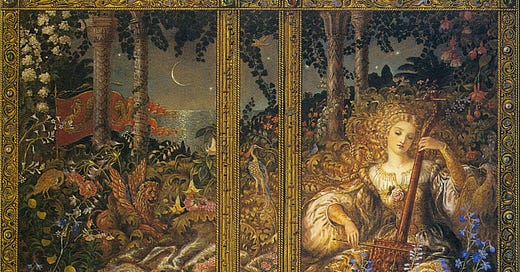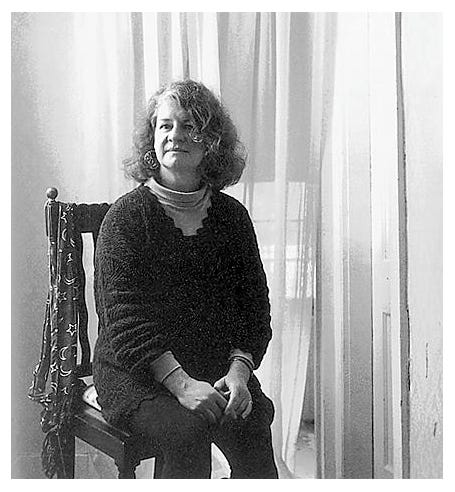Patricia McKillip and Alchemy
Towards a Language that Treats Nature as Sovereign
This weekend I gave a talk on the great Patricia A. McKillip at Once and Future Fantasies conference in Glasgow.
You can watch it here:
Doing this was an honour for me, not just because of the calibre of people in attendance, but because ten weeks prior, Patricia McKillip, one of the field’s best writers, moved on from the world of the living.
I never got chance to meet her, but there were people at the talk who had, including Terri Windling – herself a huge inspiration – who was a friend of Patricia’s and editor for some of her work.
I feel a close affinity for those writers in the field who lean into, and draw from, the mythopoeic tradition. I see them as close cousins of poets and nature writers - those who are reaching for the numinous without depriving it of mystery and danger.
Patricia McKillip said:
“Ever since I was young, the imagination, like the raw stuff of magic, has seemed to me a kind of formless, fluid pool of enormous possibility, both good and bad, dangerous and powerful, very much like the magma in a volcano. And I envisioned myself sitting on top of this mountain of magma, spinning it into endless words, visions, imagery, controlled and useful, to keep it from bursting out in its primitive state to devastate the landscape.”
The poet W.H. Auden said ‘we are lived by powers we pretend to understand.’
Previous cultures have tried to give these powers voice and form in their sacred stories, their myths, whose images cannot help but spill into alchemy.
Without a mythic awareness, these powers/gods/archetypes flood into our lives with volcanic force as illness, pathology, fascism, nuclear weapons, cancel-culture, ecological crisis, dangerously polarised politics, and the AI-backed echo-chambers of social media.†
My hope for the field of speculative fiction is that its mythic artists, scholars and various practitioners will play more of a role in bringing awareness, awe, and epistemic humility to the archetypal forces that will otherwise ‘burst out in their primitive state and devastate the landscape.’
McKillip’s approach was to lean into the beauty and lyricism of language, itself a political act, but there are other ways to shape the magma. We can do it through grimdark, space opera, cyberpunk, historical fantasy, or whatever lights us up. The main thing is that we contend with those gods, nymphs, genies and demons - the ones who know a thousand ways to destroy us or make our lives beautiful, or both at the same time.
Without a resuscitation of mythic awareness - an awareness and respect for the forces that shape our desires, hatreds and allegiances, then our chances of surviving the coming storms, in all their subtle forms, seem pretty bleak to me.
My response to this is to be more fully myself in the stories I tell, flaws included, and offer that as a gift whilst remembering that I never have the full picture, and am always lived by archetypal forces that I can never fully know.
As Patricia McKillip said, after a lifetime of shaping magma:
"I have no idea what comes next."
Patricia Anne McKillip, 1948 – 2022
† The book Mythic Figures by James Hillman shows how the gods (of the Greek pantheon in this case) are present in our technologies, cities, institutions, etc. Well worth a read.
Key texts the talk draws upon are:
Iain McGilchrist - The Matter With Things
James Hillman - Alchemical Psychology
David Abram - The Spell of the Sensuous




